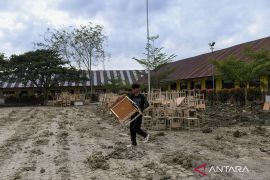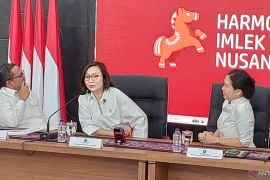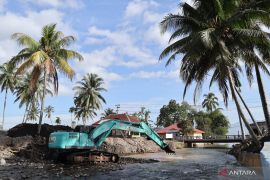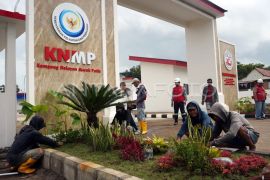"Urbanization can be accompanied by an increase in economic growth, but not all these movements can have a positive impact," the minister noted at a seminar themed "Managing Urbanization for Sustainable Cities" in Jakarta on Tuesday.
Indrawati explained that the population shift from rural to urban areas can increase household consumption, investment, and government spending, all of which have been the key drivers of Indonesia`s economic growth.
The minister revealed that in recent years, urbanization in Indonesia has been growing at a relatively fast pace as compared to other Asian countries and also swifter than the two giants -- China and India -- in the region that have the most populous demography in the world.
However, for every one percent increase in the urban population, Indonesia only records a four percent growth in its gross domestic product, which is still lower than China that could reach nine percent, and India at seven percent.
Indrawati pointed out that Indonesia has not been able to fully tap the potential of urbanization and provide adequate infrastructure facilities for the welfare of the community, which means the city`s residents are still affected by congestion and pollution and are at a risk of disasters.
Hence, to make quality services available to the public, the provision of good infrastructure holds significance, especially public transportation, sanitation, water supply, housing, and waste management system.
"Managing urbanization is not merely speaking about providing basic facilities, such as housing, education, health, and clean water, but it also means empowering migrants through the provision of educational and training facilities for ensuring ease of business and job creation," she explained.
The minister noted that the management of urbanization should not be separated from the government`s efforts to develop the outermost areas, as these regions can create new economic centers that can help to realize equitable development of human and other resources.
According to Indrawati, the development of new urban areas in the peripheral regions should be guided by local wisdom, which can be achieved by maintaining the uniqueness of natural resources and regional culture in order to create an appealing factor for development in the area.
"Hence, it is important that the local governments increase institutional and financial capacities in order to address the potential problem of imbalances caused by urbanization," she stated.
Reported by Satyagraha
(UU.KR-ARC/INE)
EDITED BY INE/A014
Reporter: antara
Editor: Heru Purwanto
Copyright © ANTARA 2017










